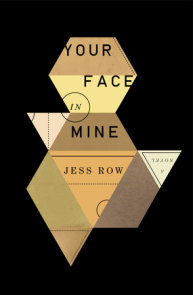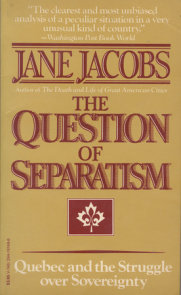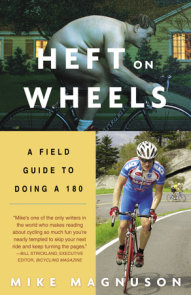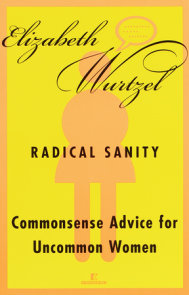READERS GUIDE
Questions and Topics for Discussion
INTRODUCTION
Diane Johnson keeps getting better and better. Just three years after Le Divorce was published to critical acclaim, earning a National Book Award nomination, the bestselling author returned with Le Mariage, an intoxicating and clever new novel once again set against the backdrop of her beloved Paris. Over the course of her thirty-year writing career, Johnson has been steadily gaining a devoted readership. This guide discusses seven of her witty, stylish, and morally astute novels.
Though Johnson’s novels run the gamut in geographical setting, protagonist, and even time period, they are unmistakably of a piece. Her critically acclaimed narrative style makes each scene unshakably real for us, and, more than just presenting a scene, she transmits the feelings and atmosphere of each situation to her readers. A skilled travel writer and essayist, Johnson excels at conveying the look and feel of exotic locations, be they Paris of Persia (Iran) or, perhaps most foreign of all to many Americans, California.
Burning, Johnson’s earliest of this collection, is also perhaps the most unique. Unlike most of Johnson’s effortlessly beautiful characters, Bingo Edwards is acknowledged by everyone, herself and her husband included, to be homely and middle-aged. Her faithful husband admires her for her intelligence though, and, of all the characters, Barney and Bingo feel the most compunction about committing adultery; yet even the Edwardses find themselves succumbing to the potent mixture of curiosity, boredom, and lust that seems to overcome all of Johnson’s characters. In Health and Happiness, a senior professor of medicine with a beautiful, supportive wife is smitten by a comatose woman. In Persian Nights and The Shadow Knows, young wives, chafing under the burdens of homemaking responsibilities, turn to a colleague of their husbands for support and escape. In Lying Low, however, we do see a character who has successfully resistedt he bonds of love, a former dancer who is considerably older than she appears, whose perseverance has brought even fewer benefits than those earned by the rash actions of others. Le Divorce, Johnson’s first novel set in France, follows a smart, sexy American abroad where, on a visit to her pregnant stepsister whose French husband has left her for another woman, she tries to keep her perspective as cultures and human passions collide.
From first to last, Diane Johnson illustrates that it is the woman who suffers love more deeply. From Magda, who comes close to losing her life, to N, who loses her home and almost her sanity, to Max, who loses her children, it is the woman who is cast out or beaten or ridiculed for the sake of love. Even when their actions verge on insanity, the male characters are protected and excused by society at large, and a little irresponsibility or callousness is not questioned. What continues to be Johnson’s triumph is that she writes strong, resilient, resolute female characters who find hidden reserves of strength and determination just when they need it most, and who persevere in the face of danger, betrayal, loss, and adversity. And always, their stories are told in an engaging, witty, and utterly believable style.
Lying Low
A National Book Award finalist, this novel relates the events of four crucial days in the lives of four people sharing a rambling Victorian house, “lying low,” and harboring secrets not meant to be shared. Theo Wait, a middle-aged former ballet dancer, and her brother, Anton, have taken in two boarders: beautiful Marybeth, who goes by the name of Lynn, who never receives mail or visitors, and in whom many readers saw Patty Hearst; and energetic and effusive Ouida, a Brazilian student and illegal alien who won’t let complicated bureaucratic wrangles and constant fear of deportation taint her vision of America as the land of opportunity. A faked identity, a search for one of the FBI’s most wanted escaped prison convicts, and a Brazilian feast that spins out of control kick the plot into high gear. While each of these characters has been plagued by a sense of impending disaster, the terrible thing they’ve all been fearing comes from an entirely unexpected direction, shattering all of their lives.
ABOUT DIANE JOHNSON
Diane Johnson’s life has been at least as exciting as any of her heroines’, filled with international travel and critical acclaim in whatever medium she deems worthy of her efforts. Born in 1934 in Moline, Illinois, Johnson’s childhood was happy without being uneventful. Johnson’s father, a high school principal, lost his job but not his honor when he exposed plagiarism committed by the daughter of the Superintendent of Schools. After high school, Diane attended Stephens, an academy for future airline stewardesses where teachers encouraged her to write, but left school in 1953 for a ‘Los Angeles’ marriage to a professor of medicine.
Twelve years later, Johnson terminated the union, having gained a Ph.D. in English from UCLA and “four wonderful children.” Simultaneously, her first book, Fair Game, was published. Johnson’s reputation continued to grow with the 1968 publication of Loving Hands at Home—“my discontented wife novel, about a Mormon family.” In 1970, Johnson penned the timely Burning, an incisive novel chronicling the experiences of a staid, conformist married couple thrown in amongst the hippies, drug-addicts, psychiatrists, and firemen of the Bel Air hills. Next, Johnson took a short sabbatical from novels to write the National Book Award-nominated Lesser Lives, a fascinating biography of Mary Ellen Meredith, wife of writer George Meredith, and a poet in her own right, though she often used her husband’s name to get her works published. In 1973, Johnson’s first short story, “An Apple, An Orange,” was included in the annual O. Henry collection of Best Short Stories.
In 1974, The Shadow Knows was released, garnering major praise from all sides. Director Stanley Kubrick was so impressed by the novel’s taut psychological suspense and depiction of a person dealing with irrational occurrences that he chose her to write the screenplay for his next horror blockbuster, “The Shining.” In 1978, Lying Low was hailed as surpassingThe Shadow Knows, with its skillfully rendered atmosphere of foreboding and malice, and its violent and tragic denouement which managed to be surprising even though the events of the book led inexorably towards it. Also in 1978, Johnson spent three months in Iran with her second husband, Dr. John Murray, under a medical school exchange program. Taking another break from fiction, in 1982, Johnson gathered several literary portraits, reviews, and review essays in to Terrorists and Novelists, and in 1983 composed another biography, Dashiell Hammett: A Life, with the authorization and help of Lillian Hellman.
Johnson used her experiences in Iran as the basis for Persian Nights. Drawing comparisons to E.M. Forster’s Passage to India, Johnson depicted, through the eyes of a typical American housewife, the collapse of Shah Mohammed Riza Pahlevi’s regime. In 1988, based on the excellence of Persian Nights, as well as the rest of her body of work, Johnson was awarded “The Mildred and Harold Strauss Livings,” which consists of a $50,000 yearly stipend to allow its recipients to devote their time exclusively to writing. In 1990, Johnson again used experiences relating to her husband’s work in Health and Happiness. Set in San Francisco, Health and Happiness shows the inner workings of a large hospital complex from the differing viewpoints of MDs, RNs, employees, volunteers, and patients. 1993 brought the publication of Natural Opium: Some Travelers’ Tales, a collection of short stories narrated by D., who is accompanied by her doctor husband, J., giving a sense that these tales are more than a little autobiographical.
In 1997, Le Divorce was published by Dutton and became a national best-seller and a National Book Award Finalist. She now divides her time between Paris and San Francisco, continuing to soak up culture and offer wry observations as a travel writer, essayist, and book reviewer for numerous publications, including The New York Times Book Review. Interviewed byThe New York Times as a consummate example of an expatriate writer, Johnson stands by her purpose, “I’m still writing about Americans for Americans.” Johnson’s latest work, Le Mariage (now a Dutton hardcover), will be published by Plume in paperback in 2001.
Praise
“Delightful…what makes this book so much fun is the acerbic humor, fresh comical voice, and the acute observations…Masterful.”—Chicago Tribune
“Sexy, graceful, and funny ” —New York Review of Books
“A sparkly novel about the screwy collision of two cultures in the City of Light…Alluring.” —Boston Globe
“Delightful…This charming tale knows exactly what to say.”—Glamour
“Social commentary at its best.”—Los Angeles Times Book Review
AN INTERVIEW WITH DIANE JOHNSON
Le Mariage is your second novel set in France. In what ways, if any, was Le Divorce a jumping-off point for the later book? How have your experiences abroad during these last three years helped to shape Le Mariage?
In Le Divorce I began to sense what a rich subject cultural difference really is—though I had concerned myself with it before, in my stories and in my novel Persian Nights, set in Iran. In the last three years, since I’ve been living in France, my fascination has only grown. And I began to feel more comfortable writing from the point of view of a French character as I got to know the French better and to see the ways they are like and unlike Americans.
Le Mariage concludes with the wedding of Anne-Sophie and Tim; in fact, the entire novel builds to this moment. What are you trying to convey about the institution of marriage? From both European and American points of view?
When Anne-Sophie and Tim get married, they have been through some of the experiences—being attracted to others, realizing that the other person isn’t necessarily interested in horses, say, or that there are things you might not wish to tell them—that mark the realization of being an individual, not just a unit in a couple—something all married people have to learn if they are to be happily married, and something the French seem to know, and Americans tend to believe is the wrong way to feel. In America we are told we are now One, instead of being given permission by society to be Two, like friends.
During the course of the two novels, you move from divorce to marriage. Are you making a conscious comment here? Do you believe that endings can lead to fresh beginnings? If you book-ended these novels, how does one impact on or complete the other?
I certainly believe that endings can lead to fresh beginnings. I loved my divorce. If you bookended these novels, you could put either one in either position; they are meant as examinations of life and marriage, but not to comment on each other.
In Le Divorce, you have one heroine—Isabel Walker, an American; in Le Mariage you essentially have two: Anne-Sophie, a Frenchwoman, and Clara Holly, an American. Was this a conscious effort to depict the French culture in a more comprehensive and accessible way?
Yes, felt that I could now venture a French point of view, where before I felt I could only write as an American.
You employ a first-person narrative in Le Divorce; it is written entirely from Isabel’s perspective. Whereas Le Mariagegives us varying third—person viewpoints (including a few male ones). Why did you choose this device and how did it enhance the story you wanted to tell?
There was simply no one character who could be everywhere I needed to go; also I had several stories to tell, and this method allowed me to tell Anne-Sophie’s and Clara’s both. And because those two stories also can be bookended—do comment on each other—I couldn’t choose between them.
Adultery plays a major role in both novels ( in fact, in several of your books). What are you telling us about marital relationships? Is there a fundamental difference between the European and the American attitude towards adultery?
There seems to be a fundamentally more realistic attitude in France that this common form of transgression occurs—in about the same proportion in both societies—but we are more hypocritical and more upset. No one likes to be a cheated-on spouse, say, but where the American wife gets a divorce, a French wife gets a trip to the Seychelles or pearls.
At the end of Le Divorce Isabel asks: “Are Americans still Americans when they are transplanted, or do they become something else?” As an American who has lived abroad for several years and who is “still writing about Americans for Americans,” how would you answer this? How might Le Mariage‘s Clara Holly, for example, “seen to acquire a certain amnesia about being American?”
I think Americans who continue living abroad certainly become something else, without ever losing the advantages of their American character. Of course there are “ugly Americans” but I would guess fewer than before, because now we are a nation of travellers, with a big diaspora. What Americans living abroad become is impatient with certain American defects that they can see more clearly from the perspective of being abroad, and less complacent about our country than, perhaps, people are who are at home not seeing the river for the trees. Travel broadens us, as James would have said, or maybe did. But there are also those who like Clara have lived in Europe a long time and become kind of mid-Atlantic, not really belonging either place. Tim is supposed to be like that too.
You once mentioned that Le Divorce was “a conscious attempt to resurrect the international novel” and you weren’t “finished with it yet.” In what ways does Le Mariage deepen and continue this effort?
It certainly is meant to continue with this rich subject. I believe that until Americans can see themselves as others see them, and can themselves understand other cultures, we will continue to blunder along, viewed as comic and menacing, in a world that needs us to be wise and good. And a novel can contribute in a tiny way to “international understanding,” so since I’m fortunate enough to live abroad in a position to view two cultures at once, I’d like to do my part…
Did any particular person, scene, or idea serve as the inspiration for Le Divorce?
I heard a lot of stories from American women in Paris, about their divorces, or divorces they’d known about. My story is a sort of compendium, though none ended quite the way mine does.
Le Divorce possesses a comical voice, but also addresses serious issues. Many authors feel it is harder to write comedy than tragedy. Do you agree? What were the challenges of blending humor and drama?
Whether or not one is a comic writer is probably a matter of temperament and vision, and you probably don’t have much choice which one you are. I do agree that the comic is a harder mode, because it can so easily descend into the jokey or slapstick or facetious, when really it must be serious. It is also harder to have the comic taken seriously—many critics mistake melodrama for high seriousness, and the comic as “light.”
You make wonderul use of Paris as a backdrop in Le Divorce. Which of the city’s features stirred your novelist’s instincts? Also, to what degree did you draw upon your own experience living in Paris?
The whole beauty of Paris, and its contrast with American cities, thrilled me very much. I drew completely on my experience of living here—for example my love for the bus and the metro, my realization that the car is a huge waste of time, the wonderful feeling of personal security that means women can come home alone late at night without concern, the rich texture of street life when people are out and about instead of locked in cars or suburban houses. The organ grinder is playing tunes under my window as I write this.
Reviewers of Le Divorce have compared you to expatriate writers like Henry James, Edith Wharton, and F. Scott Fitzgerald, among others. Have these authors been important in your own development as a writer? Were you inspired or influenced by any others?
I was certainly influenced by James, Wharton, and Fitzgerald. Fitzgerald has especially been a writer I admire; and of course James, though I always find myself on the opposite moral side to James, and Wharton. In some ways, Le Divorce was meant to be a reverse Jamesian novel, in which the heroine is a little bit wild—the Americans are not innocent and naive. I was also influenced by Hemingway, though this may not be apparent—a writer I revere, and a major writer of expatriate novels.
Your novels Persian Nights, The Shadow Knows, Lying Low—and now Le Divorce—all feature witty female heroines and narrators. Are women better observers than men in your opinion? What factors influence your choice narrator/protagonist?
No, I imagine not, but they are easier for me to imagine observing, since I am one. Also, I think the female point of view is instrinsically subversive, thus suited to the comic vision. Literary observers must by definition be marginalized in some way, in sensibility if not in position. In position they have to be well-placed. So I try to choose someone—usually but not always a woman (in Health and Happiness, for example, there was a male protagonist) who is well situated to observe the action and with personal qualities to allow her to comment on it, and sometimes to experience it.
Do you think men read your books in a different way than do women?
I expect so, but I don’t know. As a reader, I identify with the protagonists of either sex, but I don’t know if male readers have this training, since they often aren’t given, as children, books with female protagonists.
You have an impressively varied résumé as a writer: biographer, literary critic, travel writer, and novelist. How do these different disciplines blend in your work? Does the travel writer inspire the novelist and vice versa?
I think the different disciplines in which I write are all the same to me—i.e. all aspects of my own sensibility or perceptions; thus I don’t experience the different tasks as wildly different. Certainly my travels have inspired the settings for my books. And I often give characters in fiction the same ideas I might put into a book review or a critical article, the things that are on my mind.
Many of the chapters in Le Divorce open with aphorisms from great French writers. As an American novelist, do you look to European literature for certain qualities you find lacking in American literature? Was Le Divorce a conscious attempt to resurrect the “international” novel?
Not categorically, though of course, many of the books that have been most influential in my life have been Europeans or English—the 19th century English novels of Austen and Trollope and Meredith, then Russian novels, especially Tolstoy—who doesn’t start out loving novels with Anna Karenina? Kafka, Dumas, Constant. Le Divorce was a conscious attempt to resurrect the international novel, and I’m not finished with it yet!
DISCUSSION QUESTIONS






















